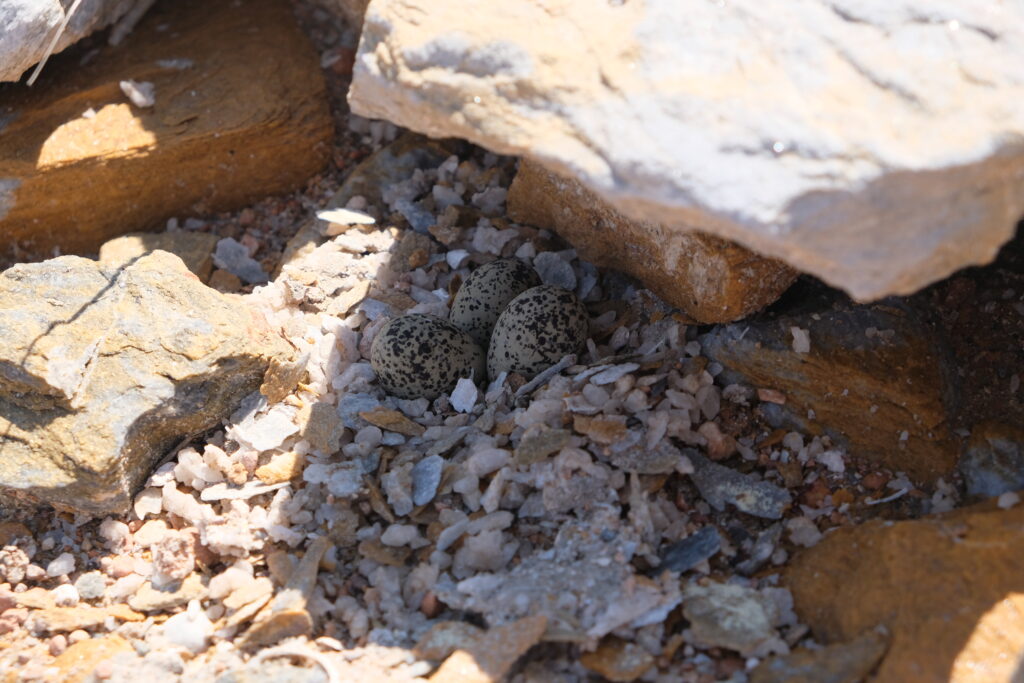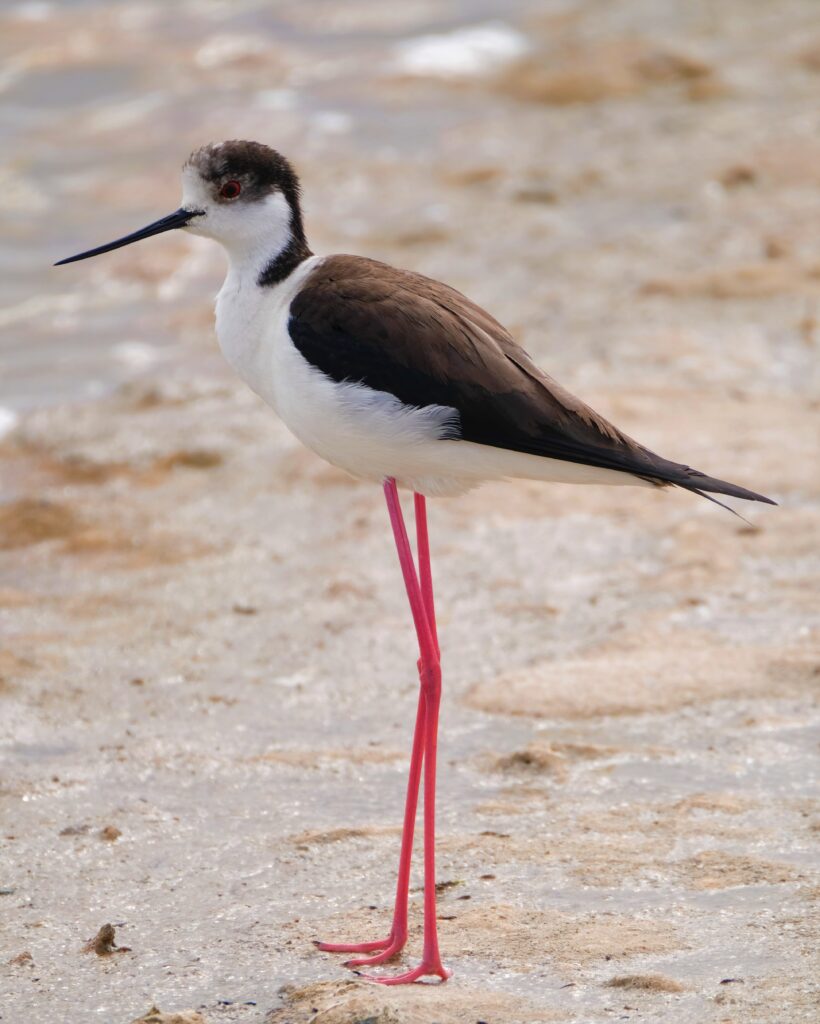The “Salinas y Arenales de San Pedro del Pinatar” Regional Park is used by a multitude of waterbirds as a breeding and wintering site, as well as a resting area during migration. Groups of waders, terns and gulls stand out for their abundance, and flamingos, grebes, herons and various species of ducks are also frequently observed. However, the tranquillity of this natural space and the availability of food in the salt marshes and the surrounding area make this enclave the main nesting area for water birds in the Region of Murcia. At present, a total of 26 species nest in the Regional Park, most of them of high conservation interest at international level, as reflected by their inclusion in European lists and directives on conservation and endangered species. The actions of the LIFE SALINAS Project are already facilitating the reproduction of some of these species, among which the following stand out:
Kentish plover (Charadrius alexandrinus)
Small resident wader that is usually found associated with coastal wetlands. In the Regional Park it nests in the salt marshes and, to a lesser extent, in areas of dunes and beaches. It feeds exclusively on invertebrates, which it locates and captures by making short, successive movements. It usually nests in the shade of vegetation or large stones, making it less visible to possible predators and at the same time absorbing the high summer temperatures during incubation. It can lay more than one clutch per breeding season, usually raising three chicks in each one of them. The average breeding population in the Regional Park is close to 40 pairs.
Black-winged stilt (Himantopus himantopus)
The black-winged stilt is the most widespread breeding wader on the Iberian Peninsula. Although it is a resident species that can be found in the salt marshes at any time of the year, part of its population migrates. Its diet is based almost exclusively on small invertebrates that it captures with its elongated beak. In the saltworks of San Pedro del Pinatar, the average population is close to 50 pairs. They nest on the ground, building a base of plant debris, shells and small stones on which they usually lay 3 or 4 eggs.
Pied avocet (Recurvirostra avosetta)
This is a resident species in the salt flats of San Pedro del Pinatar, although it is an important migrant, with more than 150 specimens being observed on some occasions during the spring migration. Due to its specialised, upward-curved bill, it feeds in a very characteristic way, sweeping the surface of the water with zigzagging movements to capture invertebrates found in the shallow part of the water column. It tends to form colonies on small islands or salt marshes, where it builds its nests on the ground, using all kinds of materials, on which it lays between 3 and 4 eggs. The chicks, a few hours after hatching, are able to stand up and try to follow the adults in search of food.
Little terns (Sternula albifrons)
They visit the saltworks of San Pedro during the summer season to breed, wintering on the Atlantic and eastern coast of Africa. It feeds mainly on small freshwater or open sea fish, which it captures by swooping down after hovering over them for a few moments. In the San Pedro del Pinatar saltworks, one of its main prey is the spanish toothcarp (Aphanius iberus). It usually nests in colonies together with other species of waders or terns, such as the avocet or the common tern. It builds its nests on the ground, providing small stones and shells, although sometimes it may lay its eggs directly on the substrate, usually 2 or 3.









